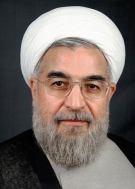Search Results for: Turkey
10 results out of 1064 results found for 'Turkey'.
FRONTIER SOURCING – NEW MANUFACTURING HUBS OFFER INCREASINGLY RELIABLE SERVICE.
Regardless of the debate about whether China is losing its shine as a clothing source, brands will always be looking for a competitive edge in new manufacturing hubs.
Myanmar’s low wage garments sector, for instance, is poised for rapid growth. The country’s first democratically elected government in 50 years is set to assume power in April and several reforms have already been made to bolster the country’s appeal as a sourcing destination for international clothing brands.…
BRANDS INCREASINGLY CONSIDER SOURCING CLOSER TO HOME
With fast fashion demands growing and China’s costs rising, sourcing closer to home is certainly becoming a more commonly considered option for brands, speeding up clothing and textile supply chains, being particularly beneficial for smaller producers, according to experts. Companies sourcing locally can have faster turnaround times, potentially better relationships with suppliers, and greater quality control.…
CHINA GARMENT MAKERS MOVE OUT, OR MOVE ONLINE
ONCE clothing sourcing was all about China. No longer. Recent years have seen a continuous decline in China’s export industry, especially in labour-intensive sectors such as clothing and shoe manufacturing, because of rising labour costs and an appreciating Chinese Yuan Renminbi (CNY or RMB).…
IRAN’S NON-FERROUS METAL SECTOR POISED FOR GROWTH AS SANCTIONS TUMBLE
The easing of international commercial sanctions against Iran is likely to boost both the country’s exports of non-ferrous metals and ores, well as foreign investment in the sector.
The Iranian Mines and Mining Industries Development and Renovation Organisation (IMIDRO) is the key government agency boosting this work and it announced on March 14 that it had signed a memorandum of understanding with the China’s Sinosteel Corporation to establish an alumina production plant and aluminium factory in Iran, along with an associated power plant supplying on-site electricity.…
BREXIT REFERENDUM PROMPTS UNCERTAINTY WITHIN NON-FERROUS METAL INDUSTRY
Uncertainty is growing within industry associations influencing the non-ferrous metals industry over the prospect of Britain leaving the European Union (EU) after a scheduled in-out referendum on June 23.
René van Sloten, executive director of industrial policy at The European Chemical Industry Council (Cefic), representing key suppliers to metal manufacturers, said: “If the result…is indeed that Britain would leave the EU, this would significantly impact on the way it trades with other European countries.…
TURKEY MONEY LAUNDERING RULES ARE WEAK, BUT WEST’S GEOPOLITICAL NEEDS MUTES CRITICISM
Turkey maybe on the front lines of the so-called ‘war on terror’, but its new customs code asks no questions about incoming cash, while its definition of terrorism has been criticised for being contrasting with international standards. Furthermore, its judiciary’s independence and the reliability of the rule of law in Turkey has been called into question.…

Nuclear deal may have swept away many sanctions, but Iran struggles to mesh with global financial system
The Islamic Republic of Iran has had to deal with financial sanctions imposed by the United States following the revolution in 1979, and then ramped up during the Bill Clinton and George W Bush administrations. But it was the multilateral financial sanctions imposed by United Nations Security Council resolutions (UNSCRs) and the European Union (EU) from 2007 onwards, and particularly in 2011, that hit Iran even harder, further narrowing an already limited window to operate financially in international terms.…
ISTANBUL NEW AIRPORT DEVELOPERS PLAN TO BUILD THE WORLD’S LARGEST AIRPORT
The construction of Istanbul New Airport will create a new hub for key emerging market country Turkeyu, replacing Atatürk Airport, located just outside of Istanbul. It processed 57 million passengers in 2014, according to a report released by the airport in 2014.…
SCHENGEN ZONE CONTINUES TO FRAY UNDER PRESSURE OF REFUGEE CRISIS
THE BORDER-free European Union (EU) Schengen zone has continued to weaken, with the European Union (EU) telling the Greek government to boost its border controls or face additional checks on passengers travelling to and from Greece. Reporting on how Greece had dealt with migrants from Turkey, many escaping Syria’s war, the European Commission, concluded there was “no effective identification and registration of irregular migrants and that fingerprints are not being systematically entered into the system and travel documents are not being systematically checked for the authenticity or against crucial security databases, such as SIS, Interpol and national databases.”…
INDIAN GOVERNMENT SUPPORT WELCOMED AS WAY TO GROW TECHNICAL TEXTILE SECTOR
THE INDIAN government’s decision to increase its available subsidies to help companies purchase new textile machinery from 10% to 15% will boost the investment in the country’s technical textile sector, which has been struggling to build big capacities.
Under the ‘Amended Technology Upgradation Fund Scheme (TUFS)’, from January 14 (2016), a producer of technical textiles can avail itself of up to USD4.5 million as capital investment subsidy.…